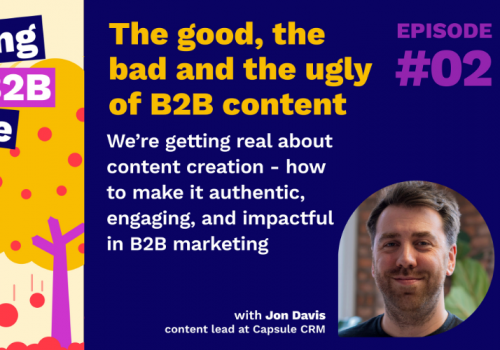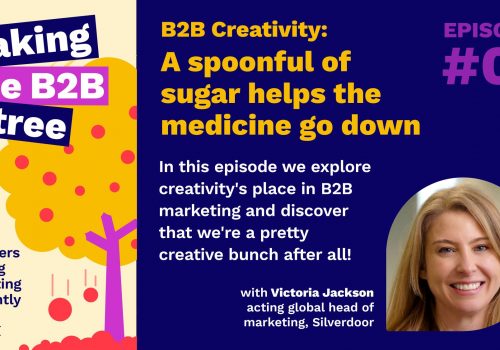Content marketing may sound daunting, but it’s really a matter of common sense. It’s an approach which focuses on the consistent creation and distribution of any kind of content that is relevant to a target audience in the business-to-business – B2B – space. Here’s how you can make the most of B2B content marketing for your business.
Know your B2B content audience
Understanding what keeps your audience awake at night and how your product or service can solve this problem is your first step. What are their pain points, challenges and needs? If you carry out research that will help you create personas of your ideal clients, you can then create B2B content marketing materials especially for each of them.
Develop a strong B2B content marketing strategy
Once you understand your audience, you can understand how they consume content. You’ll learn the platforms they use and the frequency with which they use them. From this, you can develop a strategy that aligns with your goals as you identify the key themes, subjects and formats that appeal to your target audience.
Create high-quality B2B content
Your audience is looking for expertise that solves their problem. Give it to them and offer real value in your content. This can range from blog posts to whitepapers and case studies to infographics and webinars. Your aim should be to educate your content’s consumers, while at the same time positioning your brand as a trusted authority in your sector.
Optimise for search engines
Search Engine Optimisation (SEO) helps Google and other search engines – and the people using them – find your B2B content marketing materials online. It works by looking for keywords and meta tags of content which show that the content addresses what the user has searched for. Optimising your content so it’s discoverable boosts your search engine ranking and drives more organic traffic to your website.
Distribute your B2B content on multiple channels
You can’t expect to fire a blog post into the vast world of the internet and expect it to lead to an instant increase in sales. Instead, use the many different channels available to you. As well as your website, consider email newsletters, social media channels and industry-specific forums. Again, it’s a good idea to tailor your content and make it appropriate for each platform you choose.
Use social media
Everyone uses social media these days, especially B2B buyers. Sharing your content on the channels you know they use, like Twitter, LinkedIn and Instagram, increases its visibility. Engaging with your audience by starting or joining conversations will establish your brand as a thought leader.
Incorporate video into your content
Not all your content has to be written. Video is extremely powerful in B2B marketing, as it lets you demonstrate how your product works in real-time. You can interview current users of your service as case studies too, so your audience can see how people just like them use it.
Nurture leads
The sales funnel is a subtle process. If you go too strong too soon, you run the risk of putting potential customers off. Creating specific content for different stages of the buyer’s journey guides the content consumer rather than putting undue pressure on them. Email campaigns, targeted content and personalised messaging can help build strong relationships.
Measure your content’s performance
Keeping track of how your content performs is essential. You can use analytics tools to see click-through rates on emails you’ve sent, or web traffic after you have linked to your website in a social media post. You’ll soon see what works and what doesn’t, which will help you refine your strategy even further.
Work with your Sales team
Collaboration with other people in your workplace can help you learn fresh insights into your potential customers. The Sales team might have noticed a particular need from their leads. In turn, this might inform a piece of content that many more future customers would love to see. So, ideas can be everywhere!
The B2B content audience is your priority
Any successful B2B content marketing strategy has a deep understanding of its audience. By making a commitment to consistently deliver content that is valuable and relevant to these B2B customers, you can establish your brand as a leader in its sector. You will build trust, which will then lead to all kinds of meaningful connections as your business grows.
Get in touch to talk about how we can help with your content marketing!










